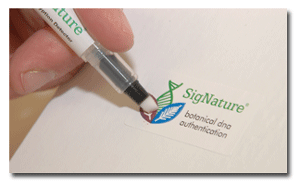The IDEA07 International Engineered Fabrics Conference and Exposition, held April 24-26 at the
Miami Beach Convention Center in Miami Beach, Fla., attracted more than 400 exhibitors in the
nonwovens and technical textile sectors 44 percent of which came from outside the United States to
present their products and services to nearly 6,000 visitors 40 percent from outside the United
States, according to the Association of the Nonwoven Fabrics Industry (INDA), organizer of the
event. The numbers of exhibitors and international visitors represented records for the triennial
event.
Of the exhibitors, 121 were showing at IDEA for the first time. In addition to individual
exhibitors, there were four country pavilions including two from China, and one each from Taiwan
and Turkey. Exhibitors reported conducting a significant amount of business at the show, and INDA
attributed the shows success in attracting increased international participation to the devaluation
of the US dollar.
“With this increasing number of visitors from outside of the United States, combined with the
large contingent of international exhibitors, IDEA07 was a truly global event,” said Rory Holmes,
president, INDA. “The world certainly came to IDEA07, and attendees and exhibitors alike were
welcomed with open arms.”
Regarding the number of new IDEA07 exhibitors, Holmes added, “Much of the innovation in this
market is coming from the smaller, aggressive suppliers from both the United States and overseas.”
He noted that 16 new products were launched during the three-day event.
INDA presented five IDEA07 Achievement Awards during the first two days of the show. DuPont,
Wilmington, Del., won two awards one for its Sorona® polymer and another for its HMT (Hybrid
Membrane Technology) roll goods technology. Other winners included Dallas-based Kimberly-Clark for
its Huggies® Pull-ups® with Cool Alert; Filtration Group, Joliet, Ill., for its GeoPleat® Air
Filter; and Dienes Corp., Spencer, Mass., for its Quik-Set Automatic Positioning Systems.
Italy-based Teknoweb S.r.l., a manufacturer of machinery lines for wipes and other nonwovens
production, received the IDEA07 Entrepreneur Award. Former INDA Chairperson Lee Sullivan; and
Professor Emeritus Edward Vaughn, Ph.D., Clemson University School of Materials Science and
Engineering, received IDEA07 Lifetime Achievement Awards and now are included in the INDA Nonwovens
Hall of Fame.
The Product Showcase, a first-time offering at IDEA07, included more than two dozen
presentations by companies participating at this years show.
The IDEA07 Conference agenda included presentations on India, Energy and Innovation.
May 15, 2007





